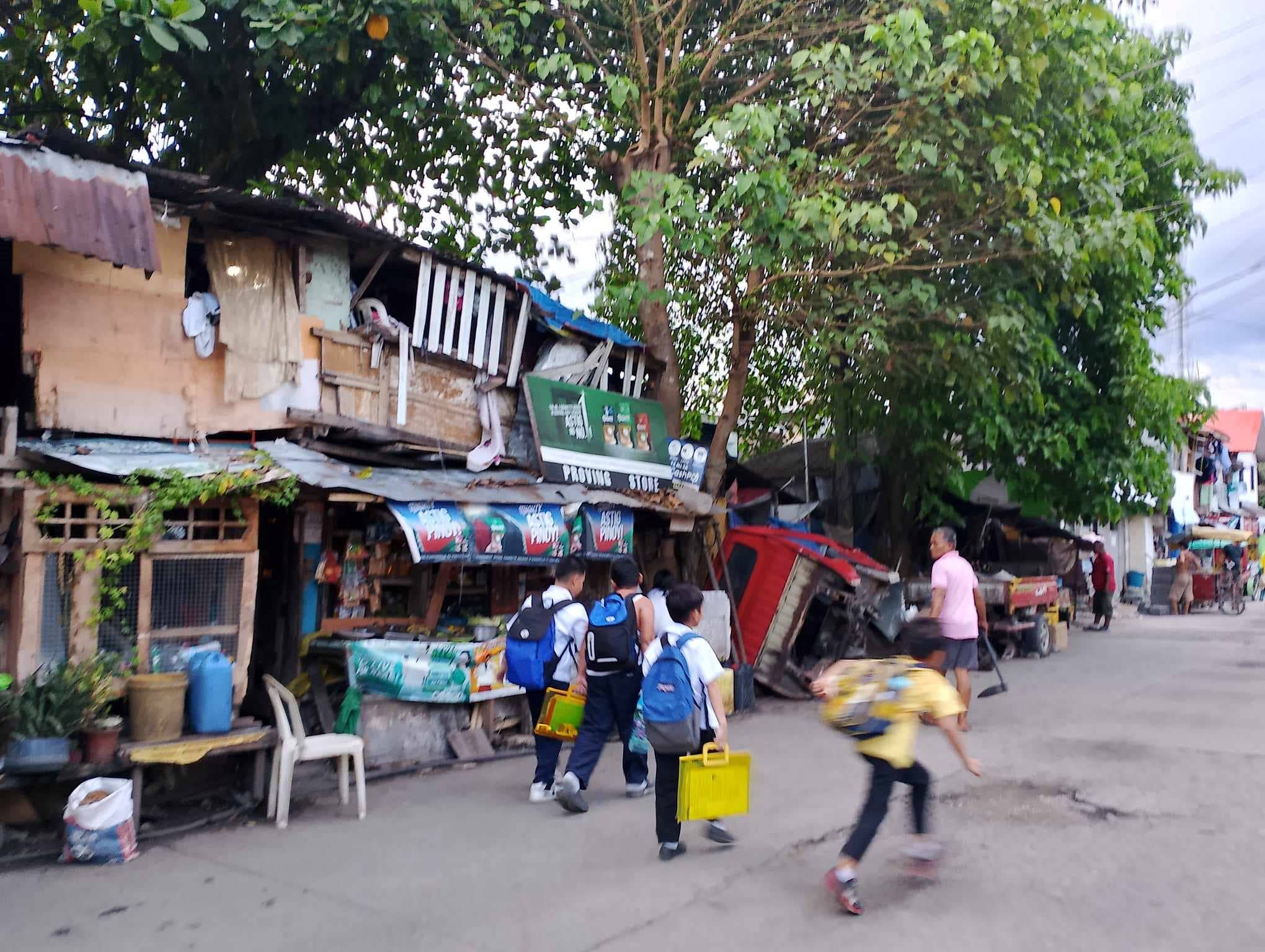
DEPRESSED High poverty incidence continues to stalk Eastern Visayas at 20.3 percent in 2023, including this depressed village in the regional capital Tacloban City, shown here on Thursday, despite the highly urbanized city having a 10.6 percent poverty incidence level that is closer to the national average. —JOEY A. GABIETA
TACLOBAN CITY—Eastern Visayas remained one of the poorest regions in the country despite a 2-percent drop in poverty incidence last year, according to data from the Philippine Statistics Authority (PSA).
The PSA, in a report released on Tuesday, said the poverty incidence among families in the region was recorded at 20.3 percent in its last study done in 2023, which was twice as much as the national average, indicating that a significant portion of the population had incomes that are not sufficient to meet their basic food and nonfood needs.
Eastern Visayas—composed of Samar, Eastern Samar, Northern Samar, Biliran, Leyte, and Southern Leyte—had a poverty incidence of 22.2 percent in 2021.
The PSA said the national poverty incidence among families in 2023 was recorded at 10.9 percent, which was “equivalent to 2.99 million Filipino families without enough income to meet their basic food and nonfood needs.”
Not enough
Based on PSA records, Eastern Visayas ranked fifth among the country’s poorest regions in 2023, with Zamboanga Peninsula recording the highest poverty incidence among families at 24.2 percent, followed by the Bangsamoro Autonomous Region in Muslim Mindanao (23.5 percent), Negros Island Region (22.6 percent) and Bicol (20.3 percent).
The PSA also revealed that Eastern Visayas’ average monthly poverty threshold—the minimum income required to sustain a family’s basic needs—rose to P13,492 in 2023 from P11,187 in 2021.
However, the PSA said a family with five members needed at least P13,873 per month to meet their minimum basic food and nonfood needs in 2023.
Samar had the highest poverty incidence, with 24.9 percent of its entire family population considered as poor, followed by Eastern Samar at 24.7 percent and Northern Samar at 21.8 percent.
Leyte, excluding Tacloban City, recorded a poverty rate of 21.7 percent.
Tacloban City, the region’s only highly urbanized city, has a poverty incidence of 10.6 percent.
Significant progress was observed in Biliran and Southern Leyte, where poverty rates dropped significantly between 2021 and 2023.
Biliran’s poverty incidence fell from 19.9 percent in 2021 to 8.5 percent in 2023, while Southern Leyte saw a decline from 16 percent to 7.1 percent.
The PSA attributed these poverty trends to various economic factors, including inflation and increasing living expenses, which have widened the gap between the region’s poor and non-poor populations.
Remarkable drop
Undersecretary Claire Dennis Mapa, PSA national chief, in a visit to Northern Samar on Oct. 14, praised the province’s efforts in reducing poverty.
Mapa commended Gov. Edwin Ongchuan for spearheading initiatives that contributed to a “remarkable reduction” in the province’s poverty incidence, which stands at 21.8 percent—the lowest among the three Samar provinces.
Ongchuan’s administration has implemented a series of antipoverty programs, which included investments in infrastructure and local economies with support from national programs such as Payapa at Masaganang Pamayanan and the Philippine Rural Development Project.
These efforts have stimulated job creation, enhanced food security, and fostered sustainable development in the province.
Ongchuan has also worked closely with the National Task Force to End Local Communist Armed Conflict to address insurgency-related issues in remote areas.
This collaboration has helped improve peace and order, enabling better access to government services and economic opportunities for the people of Northern Samar.